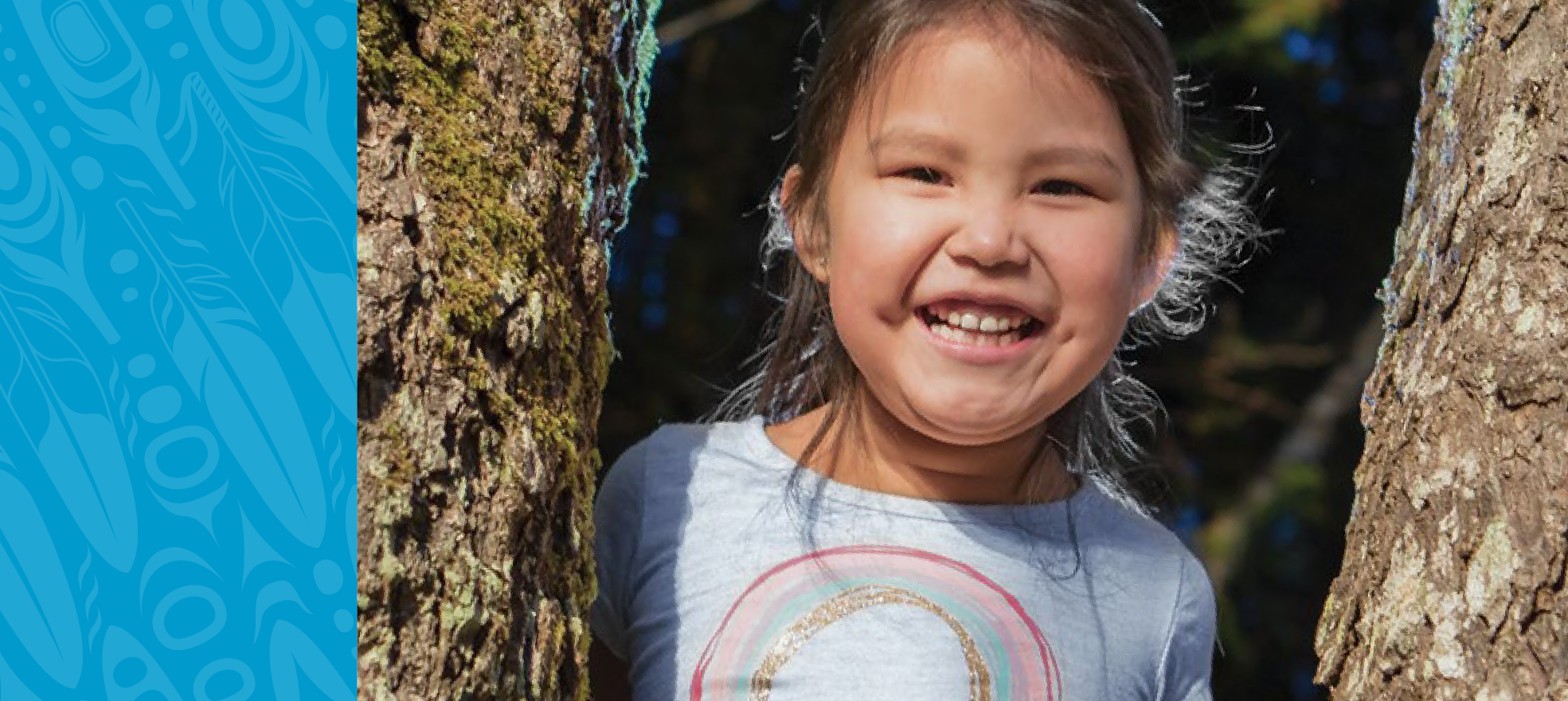Alignment of Laws
Section 3 of the Declaration on the Rights of Indigenous Peoples Act (Declaration Act) requires B.C. to align its laws with the United Nations Declaration on the Rights of Indigenous Peoples (PDF, 150KB) (UN Declaration) in consultation and co-operation with Indigenous Peoples.
To support government’s reconciliation efforts by ensuring laws, policies and practices are consistent with the UN Declaration, the Province has established the Declaration Act Secretariat.
In October 2022, the Secretariat released the Interim Approach to Implement the Requirements of Section 3 of the Declaration on the Rights of Indigenous Peoples Act. This world-leading guidance document provides every ministry and sector of government with clear, transparent processes for how they are to work together with Indigenous Peoples in developing provincial laws, policies and practices, as required under the Declaration Act. Learn more about the Interim Approach.
Read the report written on Section 3 by Dr. Roshan Danesh, KC that informed the Interim Approach.
The work to align laws with the UN Declaration is resulting in an increasing number of legislative reforms including:
The Social Development and Poverty Reduction Statutes Amendment Act, 2024 (Bill 7)
The Ministry of Social Development and Poverty Reduction introduced Bill 7 on March 5, 2024, and it passed on March 12, 2024. The bill established the framework to support joint and consent-based decision-making agreements with Indigenous Governing Bodies to the BC Employment and Assistance legislation. It also incorporated amendments to the Poverty Reduction Strategy Act, which require the Minister to include actions and progress measures for the reduction and prevention of poverty, recommended by Indigenous Peoples, when updating the Poverty Reduction Strategy and in ongoing poverty reduction efforts.
Child, Family and Community Service Amendment Act (Bill 5) and Adoption Amendment Act (Bill 19)
The Ministry of Children and Family Development introduced Bill 5 on Feb. 28, 2024, and it passed on March 14. Bill 19 was introduced on April 8, 2024, and passed on April 25. The amendments expanded the scope for joint and consent-based decision-making agreements in Indigenous child and family services creating a full pathway for dispute resolution through the provincial courts under Indigenous law. In addition, the amendments broadened the definition of “Indigenous child” so Indigenous governing bodies who are not yet exercising jurisdiction through a formal agreement can identify their children provincewide and be involved in the planning and coordination of their care. This legislation was developed in consultation and collaboration with Indigenous partners, regional health authorities and the BC Civil Liberties Association.
Accessible British Columbia Act (Bill 6)
The Minister of Social Development and Poverty Reduction introduced the new legislation on April 28, 2021, as Bill 6. The Accessible British Columbia Act, passed into law June 3, 2021, establishes the legal framework to identify, prevent and remove barriers to accessibility including for Indigenous people.
Human Rights Code Amendment Act (Bill 18)
The Attorney General introduced this statute on November 17, 2021, as Bill 18. The bill, which was passed into law November 23, 2021, amended the provincial Human Rights Code to further uphold Indigenous human rights and advance reconciliation with Indigenous Peoples by adding Indigenous identity as a protected ground against discrimination.
Amendments to the Adoption Act (Bill 21)
The Ministry of Children and Family Development developed these amendments, which were introduced under a miscellaneous statute on October 7, 2021, as Bill 21. Passed into law October 21, 2021, the amendments authorized information-sharing under the Adoption Act. The changes established this authority to support First Nation adoptees in obtaining their status so they can gain access to federal health, dental and other benefits.
Amendments to the Child, Family and Community Service Act (Bill 21)
The Ministry of Children and Family Development developed these amendments, which were introduced under a miscellaneous statute on October 7, 2021, as Bill 21. The bill was passed into law October 21, 2021, aligning the Child, Family and Community Service Act with the information-sharing requirements of the federal statute, an act respecting First Nations, Inuit and Métis children, youth and families.
Anti-Racism Act (Bill 23)
The Ministry of the Attorney General introduced new legislation on April 11, 2024. The Act passed into law on May 16, 2024. With this legislation, the B.C. government is taking action on systemic racism uncovered through race-based data collection and lived experiences of Indigenous Peoples and racialized communities. For example, the legislation requires the Province to strengthen checks and balances in its programs and services in hospitals, schools, courts and other public spaces. A new anti-racism committee will draw up a whole-of-government action plan to address systemic racism. The legislation fulfils Action 3.6 of the Declaration Act Action Plan, which commits the Province to introducing anti-racism legislation that addresses Indigenous-specific racism.
Forests Statutes Amendment Act (Bill 23)
The Minister of Forests introduced this statute on October 20, 2021, as Bill 23. Passed into law on November 23, 2021, the bill amended the Forests Act, the Forest and Range Practices Act, and the Forest Practices Code of British Columbia Act. These amendments establish the framework for an approach that is more focused on ecological and cultural values. A key part of this will be replacing forest stewardship plans, which are currently developed by industry, with forest landscape plans developed by the Province with First Nations, local communities and other partners, which will create new opportunities for shared decision-making between the Province and First Nations.
The Anti-Racism Data Act (Bill 24)
Passed June 2, 2022, the act allows data to be collected that will help identify gaps in programs and services and ensure government can better meet the needs of Indigenous, Black and other racialized British Columbians. The act is one of the first pieces of legislation to be co-developed with Indigenous Peoples under the Declaration on the Rights of Indigenous Peoples Act. Since the legislation came into effect, an anti-racism data committee has been formed to bring together community members to collaborate with government to determine key research priorities and how to gather and use data to identify and eliminate systemic racism in the public sector. The act requires the Province to work with Indigenous Peoples on data initiatives related to anti-racism including data standards and research priorities.
Education Statutes Amendment Act (Bill 25)
The Minister of Education and Child Care introduced the amendments on October 25, 2021, as Bill 25. Passed into law on November 2, 2021, the bill amended the First Nations Education Act, the Teachers Act, and the Criminal Records Review Act, all in support of First Nations’ jurisdiction over education on First Nation land. In addition, the legislation changed the composition of the British Columbia Teachers’ Council, ensuring representation and a voice for First Nations Education Authority.
Interpretation Amendment Act (Bill 29)
The Attorney General introduced this statute on November 17, 2021, as Bill 29, which was passed into law on November 23, 2021. This bill added a universal non-derogation clause to the Interpretation Act, making it explicit that provincial laws uphold, and do not abrogate or derogate from, the rights of Indigenous Peoples under Section 35 of the Constitution Act, 1982. Bill 29 also amended the Interpretation Act to provide that all provincial acts and regulations must be read to be consistent with the UN Declaration.
The progress of bills can be viewed on the Parliamentary Business website. Recent announcements on new or amended legislation can be found on the Working for you website.
Emergency and Disaster Management Act (Bill 31)
The Ministry of Emergency Management and Climate Readiness introduced the legislation on October 3, 2023. On November 8, 2023, the Act came into force. This act formally recognizes First Nations’ inherent right of self-government in relation to emergency management. It establishes a framework for agreements between Indigenous governing bodies and other authorities that can help advance shared decision-making and coordination. The Act also includes engagement provisions that require the Province, local authorities and critical infrastructure owners to consult and cooperate with Indigenous governing bodies and incorporate Indigenous knowledge and cultural safety across emergency management practices.
Health Professions & Occupations Act (Bill 36)
The Ministry of Health introduced this new legislation on October 19, 2022, as Bill 36. The Health Professions and Occupations Act passed into law on November 24, 2022. It enhances patient safety, strengthens oversight of health regulatory colleges and improves governance of health professionals. With this legislation, the Province formally hardwires anti-discrimination measures, restorative processes and trauma-informed practices directly into health profession legislation.
Indigenous Self-Government in Child and Family Services Amendment Act (Bill 38)
On October 26, 2022, the Ministry of Children and Family Development amended the Adoption Act and the Child, Family and Community Service Act, recognizing the inherent right of self-government of Indigenous communities including jurisdiction over child and family services. The amendments removed barriers in provincial legislation so Indigenous Peoples can deliver child and family services pursuant to their Indigenous laws, keeping Indigenous children and youth safely connected to family, community, and culture. One of the goals is to address and reduce the disproportionate numbers of Indigenous children and youth in provincial care. The amendment act passed into law on November 25, 2022.
School Amendment Act (Bill 40)
The Ministry of Education and Child Care introduced changes to the School Amendment Act on October 25, 2023, with all changes in effect on April 30, 2024. Some of the changes include new provisions that set out a process for First Nations to choose which school First Nation students who live on-reserve, self-governing First Nation lands or Treaty lands will attend. All boards are also required to establish an Indigenous Education Council in their school district. While many school districts already have some form of Indigenous Education Council, this reset ensures that Indigenous Peoples are meaningfully engaged on decisions that directly affect Indigenous students, and that the councils are reflective of the district student population.

The Declaration Act Action Plan is a five-year, cross-government action plan that will guide the Province’s work to implement the UN Declaration in B.C.
Download the plan (PDF, 3.7MB) or learn more by visiting the Declaration Act website.

The Declaration Act Action Plan is a five-year, cross-government action plan that will guide the Province’s work to implement the UN Declaration in B.C.
Download the plan (PDF, 3.7MB) or learn more by visiting the Declaration Act website.
Contact information
Please call or email us if you have any questions.
1-800-880-1022
declaration@gov.bc.ca
